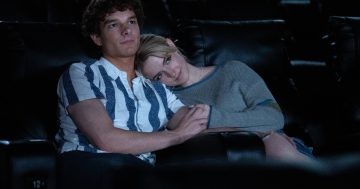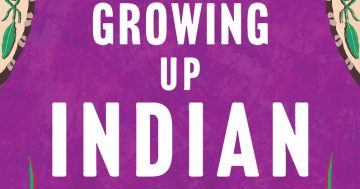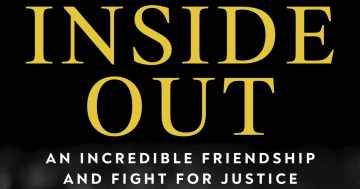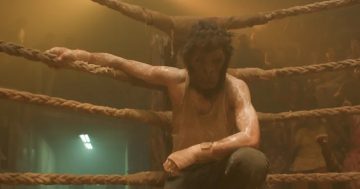Reviewed by Robert Goodman.
By Sharon Dodua Otoo, Quercus, $32.99.
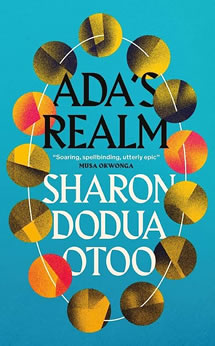 Ada’s Realm by Sharon Dodua Otoo is what can only be described as a high concept novel. Translated from the German by Jon Cho-Polizzi, it charts the lives of four women separated through time all called Ada through the eyes of a type of guardian spirit who occasionally has conversations with God.
Ada’s Realm by Sharon Dodua Otoo is what can only be described as a high concept novel. Translated from the German by Jon Cho-Polizzi, it charts the lives of four women separated through time all called Ada through the eyes of a type of guardian spirit who occasionally has conversations with God.
Ada’s Realm opens in 1459 in a small village on the West Coast of Africa. A woman called Ada has just lost her second child and is seeking to bury him with a valuable necklace. Her grieving is interrupted by Portuguese invaders. Flick to 1848 and Ada Lovelace, widely regarded as the creator of the first computer program, is having an affair with Charles Dickens which is discovered by her husband. Jump again to 1945 and a woman called Ada has been put to work as a prostitute in the Mittelbau-Dora concentration camp. These three stories weave in and out of each other and coalesce around the story of another Ada who has come to Berlin from Ghana in 2019 and is living with her half sister. The story of this final Ada, and her connections back to the other Adas and the bracelet that has made its way through time, is the main one of the back half of the novel.
So far so connected. These stories, when not being told in first person, are narrated by a kind of spirit who watches over Ada but has little agency. In the 1459 section of the novel, the spirit takes the form of a broom that is used to beat Ada, in 1848 it is a door knocker, in 1945 it is the room that Ada works in and in 2019 it takes the form of Ada’s British Passport. This is a strange stylistic choice and it is never clear what the spirit is meant to achieve as despite all of its trying it cannot affect events but it does provide a unique view into the lives of the four women.
All of this strangeness though, is in service of something. And that is an exploration of a range of themes, particularly through the story of the final Ada – of dealing with casual racism, of struggling to start a family, of reckoning with centuries of female disempowerment. It seems that she is meant to be the culmination of the other three, taking elements of each of them – resistance, intelligence and strength – and deploying them to make her own life despite setbacks. But the structure and techniques deployed mean that this will not be a book that appeals to everyone. For those who do get on Otoo’s wavelength, though, there is plenty to think about.




